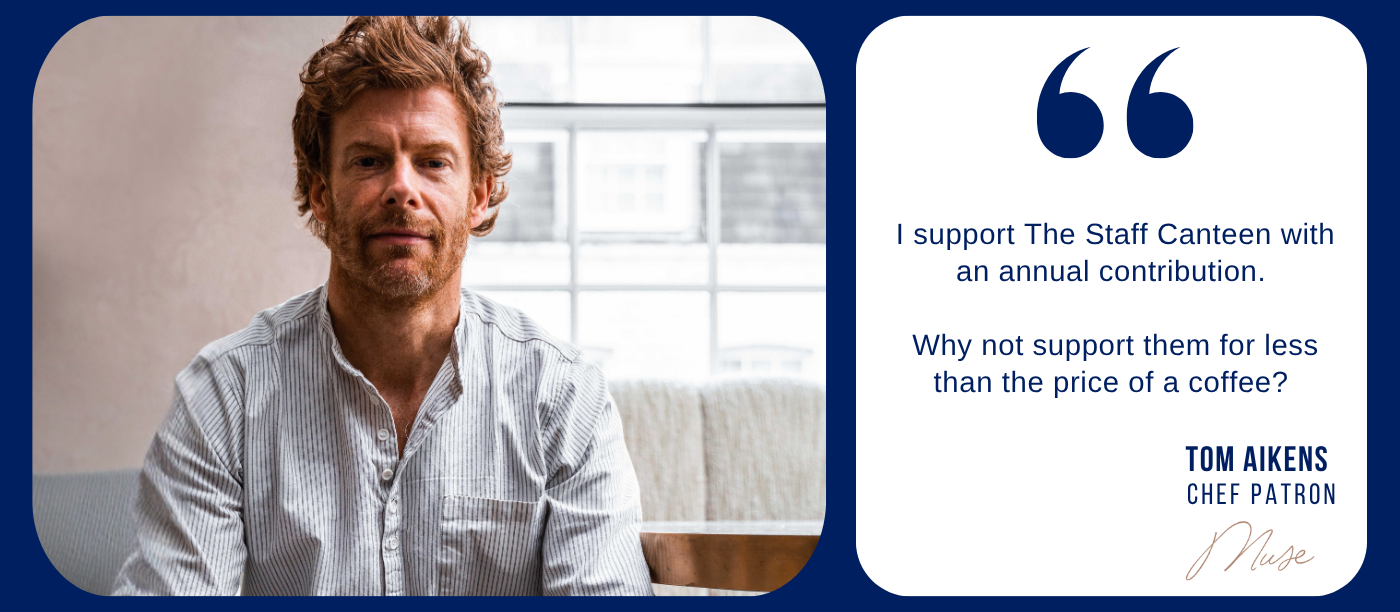‘Covid-19 is disruptive to our industry in that you innovate or die’

Doug McMaster is the chef owner of Silo in Hackney, described as ‘a disruptive force within the industry’, Doug has spent years championing a zero-waste policy.
As part of A webinar held to promote the Basque Culinary World Prize, he spoke about the affect Coronavirus has had on himself and his restaurant.
When the time comes to reopen after the Coronavirus lockdown is lifted, Doug explained Silo has a very spacious dining room.
“We will be able to operate at 90 percent of our normal capacity.”
This he says is good enough but this is a luxury not many restaurants will have as they may be expected to cut covers by up to 50 percent to abide by social distancing rules.
Coronavirus in London
Although Doug is confident about the future, the impact right now has forced Silo to close like most other restaurants. And unlike other establishments, Silo operates on zero-waste, which in the context of a restaurant, means to not have a bin.
“We call this a pre-industrial food system. I realised a few years ago that waste exists because of humans and they have created an industrial food system.
“Whether it’s plastic or polystyrene or pollution, these things are wasteful, and they are human creations.
“We have a responsibility to take away that problem. My restaurant not having a bin is a solution to that.”
Things in London were challenging, because the concept of Silo completely relies on a natural supply chain, he does not have the luxury of industrial logistics and efficiency.
“We don’t call wholesalers, we call farmers.”
Doug explained that even though it has its challenges, opening Silo in London ‘was much easier six years on from opening Silo in Brighton’, farmers and suppliers were much more open to putting their products in a reusable container.
Now unfortunately with what has happened all of the small supply chains have completely collapsed.
“Because of the pandemic none of our suppliers can deliver because they rely on maximising their logistics, their transport into London, but all of those restaurants they would normally supply have closed so they just can’t afford to deliver to us – so our supply chain has just gone.
“There is no food system so there is no Silo, which is obviously very heart breaking. But I like a challenge, and I like to optimistically look at every predicament, every problem, as an opportunity to innovate and think broadly.”
He believes the secret to

a lot of progression is perspective, taking a step back from the situation, looking at a bigger picture and planning for that bigger picture.
But he said: “What’s going to happen in two months? I have no idea.”
forward thinking
Everybody is reacting quickly to sustain their business and to survive and that is really important. However, at Silo they don’t have the luxury of offering a delivery service because they don’t have the supply chain or the packaging.
“This is a great time to think – we just don’t have enough time in this industry to think.
“We’ve looked at the bigger picture and asked ourselves some questions; why am I doing what I’m doing? Why are we promoting zero waste and why is that important? If it is so important to me, how can I do it better?
“Now I don’t have the restaurant how can I keep making an impact on England, the world, with this idea? I’m focusing all my attention on a new online learning platform to hopefully turn zero waste into a mainstream idea that is accessible to everybody.”
Single use plastic
Plastic is almost the symbol of industrial packaging, it’s as industrial as it gets and is the synthesis of natural things to create something which is not natural.
“As bad as we know plastic is, unfortunately it is incredible,” said Doug. “It’s productive, efficient, cheap and very food safe. So right now, it is a necessary evil. As much as I don’t like it, I think it needs to happen right now.”
He would like to see in the future investment in bio plastics and said: “It is something the future needs and beyond this pandemic I hope there is a lot of innovation around biodegradable plastic.”
The positives
“Covid-19 is disruptive to our industry in that you innovate or die," said Doug. “We are being forced into a decentralised network of activity so our restaurants are our central hive of activity and we have been forced out into our independent places of home.
“We are seeing a lot of innovation at home, a lot of chefs cooking at home, it’s a good thing - the more diverse we become the more resilient we become to future catastrophes.”
He added: “I think there are a lot of positives from this diversification and decentralisation – but I’m excited about getting back into the culture of restaurants and eating out.”
Photo credit: Foodism

For 17 years, The Staff Canteen has been the meeting place for chefs and hospitality professionals—your stories, your skills, your space.
Every recipe, every video, every news update exists because this community makes it possible.
We’ll never hide content behind a paywall, but we need your help to keep it free.
If The Staff Canteen has inspired you, informed you, or simply made you smile, chip in £3—less than a coffee—to keep this space thriving.
Together, we keep the industry connected. Together, we move forward.



















